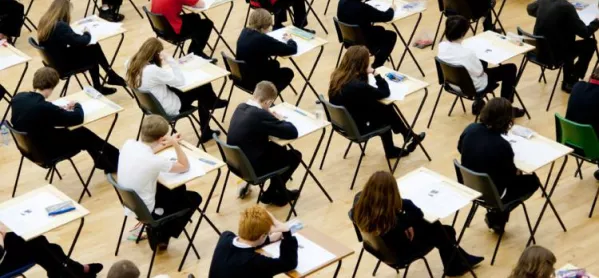I do find myself questioning the need for the revised GCSEs to be so heavily reliant on memory in an era when we need to remember less and less due to the technology in our lives.
The question then leads me to think about what is really being assessed in the revised GCSEs. We therefore need to consider what this means for future generations and the definition of educational achievement going forward.
Maths and English are the first revised GCSEs that will be taken by Year 11s this year, and learners taking resits in these subjects in further education colleges. Next year all GCSEs subjects will be a single exam.
To explore further, I will focus on the English GCSE.
The syllabus, suffice it to say, is limited, certainly in voices of writers from different ethnicities other than “white British”. Memory plays a big part in this exam. Two plays, one novel and an anthology of 15 poems need to be committed to memory.
What do new GCSEs achieve?
We need young people to be critiquing, thinking critically and questioning. And if so much of their potential grade depends on their memory then really we are not encouraging this essential development.
Using search engines has changed how we use our memory; we no longer need to remember, we remember where it is stored. So the internet has become our external memory. Google, for example, now processes 1.2 trillion searches per year worldwide.
In an era where search engines have changed how knowledge is stored and retrieved, why is it that the exam process has taken a huge step back into the dark ages with students having to memorise? I find myself asking: “What is being assessed?” Is it their analytical skills, their appreciation of literature and language or simply memory?
It seems that the aesthetic values of learning is being drummed further out of the curriculum in favour of the intensified draconian testing of performance knowledge and skills. The aesthetic appreciation of literature and language, and opportunities for creativity, is lost in a cognitive model of teaching English where it reduces reading and writing to discrete technical skills divorced from aesthetic pleasure; a pleasure that no young person should be denied. Indeed a pleasure that inspires, and learning that encompasses our whole being. The emphasis then is on interpretation not simply a memory-based exercise that breaks down the use of language techniques.
Going forwards, not backwards
Separating the aesthetic pleasure from learning is reductive and disengages students. Last year, approximately 39.8 per cent of students didn’t achieve an A*to C grade in GCSE English, and the resit pass rate was 26.9 per cent of students aged 17 and over.
It is at this point that government rhetoric would blame poor teaching or even the students. However, this is a persistent issue which is not going away. This latest revision to curriculum and assessment has not been designed for young people living in the 21st century, with 21st-century minds, and should be challenged. It does not fit with the era we are living in and it penalises a generation of young people who use their brains and knowledge differently through technology. Remember: we’re in the 21st century. Let’s go forward not backwards in education.
Sasha Pleasance is an FE teacher educator, founding member of Tutor Voices and recently published author
Want to keep up with the latest education news and opinion? Follow TES FE News on Twitter, like us on Facebook and follow us on LinkedIn


